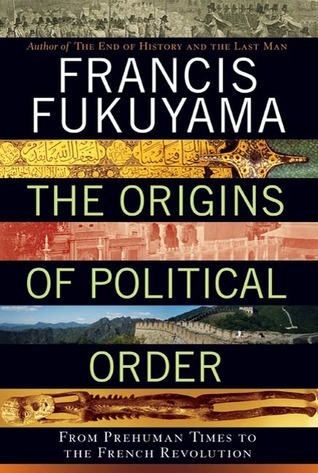More on this book
Community
Kindle Notes & Highlights
Read between
March 15 - May 27, 2014
Parliamentary government emerged when there was a relative balance of power between a cohesive state and an equally well-organized society that could defend its interests.
There is one simple lesson to be drawn from this comparison. Political liberty—that is, the ability of societies to rule themselves—does not depend only on the degree to which a society can mobilize opposition to centralized power and impose constitutional constraints on the state. It must also have a state that is strong enough to act when action is required.
Since we began this long account of political development by raising the question of how Denmark got to be Denmark—a law-abiding, democratic, prosperous, and well-governed polity with some of the world’s lowest levels of political corruption—we need to spend some time explaining this outcome.
If there is a single event that sent Denmark and other parts of Scandinavia off on a distinct development path, it was the Protestant Reformation.
Beginning in the sixteenth century, the Lutheran church began to set up schools in every village in Denmark, where priests taught peasants the basics of reading and writing. The result was that, by the eighteenth century, the peasantry in Denmark (and in other parts of Scandinavia) had emerged as a relatively well-educated and increasingly well-organized social class.
It is hard to imagine a greater contrast than that between rural Scandinavia and Russia in the early nineteenth century, despite geographical proximity and similarities in climate.
the sanctity of the rule of law was historically dependent on the religious origins of law.
Human beings are not completely free to socially construct their own behavior. They have a shared biological nature.
Human beings never existed in a presocial state. The idea that human beings at one time existed as isolated individuals, who interacted either through anarchic violence (Hobbes) or in pacific ignorance of one another (Rousseau), is not correct.
The ability to make and obey rules is an economizing behavior in the sense that it greatly reduces the transaction costs of social interaction and permits efficient collective action.
In more recent times, the rise of modern democracy is incomprehensible apart from the demand for equal recognition that lies at its core.
writers from Hegel to Tocqueville to Nietzsche have traced modern ideas of equality to the biblical idea of man made in the image of God. The expansion of the charmed circle of human beings accorded equal dignity was very slow, however, and only after the seventeenth century came eventually to include the lower social classes, women, racial, religious, and ethnic minorities,
The actual historical roots of different institutions often seem to be the products of a long concatenation of historical accidents that one could never have predicted in advance.
Max Weber’s definition of the state (an organization deploying a legitimate monopoly of violence over a defined territory) but also his criteria for a modern state (states should be subject to a rational division of labor, based on technical specialization and expertise, and impersonal both with regard to recruitment and their authority over citizens).
A state apparatus composed of many autonomous institutions is more likely to be coherent than one with subordinated institutions.
Societies from Rome to China attributed military setbacks to inadequate observance of religious obligations; instead of spending time reorganizing and reequipping the army, they devoted resources to increased rites and sacrifices.
The ability of societies to innovate institutionally thus depends on whether they can neutralize existing political stakeholders holding vetoes over reform.
This is, in effect, the essence of politics: the ability of leaders to get their way through a combination of authority, legitimacy, intimidation, negotiation, charisma, ideas, and organization.
Violence is classically seen as the problem that politics seeks to solve,21 but sometimes violence is the only way to displace entrenched stakeholders who are blocking institutional change.
The Catholic church, long vilified as an obstacle to modernization, was in this longer-term perspective at least as important as the Reformation as the driving force behind key aspects of modernity.
But the understandable focus on developments of the last two hundred or so years has obscured our ability to comprehend the nature of political economy in premodern societies.
Having a state is a basic precondition for intensive economic growth.
The phenomenon we now label globalization is only the latest iteration of a process that has been taking place continuously over the past several centuries with the spread of technologies related to transportation, communications, and information.
We have seen how institutions were the products of contingent historical circumstances and accidents that are unlikely to be duplicated by other differently situated societies. The very contingency of their origins, and the prolonged historical struggles that were required to put them in place, should imbue us with a certain degree of humility in approaching the task of institution building in the contemporary world.
The failings of modern democracies come in many flavors, but the dominant one in the early twenty-first century is probably state weakness: contemporary democracies become too easily gridlocked and rigid, and thus unable to make difficult decisions to ensure their long-term economic and political survival.


